Desertification in Africa is an Intersectional Problem, and Women are Stepping up to the Challenge3/31/2020 This post was submitted by Susu Lassa who is an associate with one of our member communions- The Church of the Brethren Office of Peacebuilding and Policy. While much of the work Creation Justice Ministries does is based in the United States, this piece highlights how climate change affects people around the world. We all live on God's one and only Earth yet the climate crisis uniquely affects different regions. 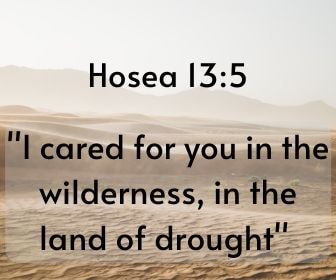 Nomadic herdsmen in the Sahel would head south during hot, dry season, often welcomed by farmers as their cattle fertilized the land. However, a once symbiotic relationship has turned sour, deteriorating into violent conflict that is plaguing the region. This is not an isolated case, as regions in East Africa are engulfed in violent conflict and plagued by food insecurity as well. Climate change, namely desertification, plays a significant role. The Food and Agriculture Organization of the United Nations estimates that approximately 80% of the farmland in the Sahel is degraded. With soaring temperatures rising 1.5 times faster than the global average, land available to farmers is shrinking, and they are reeling from food crisis. This multifaceted issue-area gains a macabre dimension as marginalized farmers and herdsmen, due to minimized livelihood options, are susceptible to recruitment as foot solders for the multiplicity of violent conflict raging in the Sahel region. The intersection between desertification, food-insecurity, and the experience of the African woman results in horrific gender-based violence. Currently in the Sahel, 33 million women, children, and men are food insecure, while 4.7 million children under the age of 5 suffer from acute malnutrition. In such dire situations, girls in these regions, still children that fall within the aforementioned categories themselves, are forced into child marriages to help their families avoid food insecurity. Take the story of Ntoya Sande, a 13-year-old Malawian girl who was forced into marriage against her will. “I was sent to be married because of a shortage of food in the house…” she said. “I tried to negotiate, to tell my parents that I wasn't ready, that I didn't want to get married, but they told me that I had to because that would mean one mouth less at the table.” Ntoya’s is just one of the hundreds of stories highlighted in a recent study by the IUCN on the effects of climate change and environmental degradation on gender based violence. Concurrently, women in coastal regions near bodies of water face the growing threat of violence as fish has become increasingly scarce. Thus, fishermen in these areas are now not only expecting money as payment for fish, they are also demanding sex. As such, women are exposed to various kinds of sexual violence in their endeavors to secure a meal on their table. These intersections of violence go to show the multifaceted experiences of women in various regions of Africa due to climate change; climate change compounds existing vulnerabilities. Nonetheless, in a rapidly changing and increasingly violent world, women remain on the forefront of combating the brutal ramifications of climate change and desertification. Reasons include the fact that tending to the land and growing necessary crops for sustenance is a task that is often relegated to the domestic realm in which women and their experiences exist. As such, women across the continent spend a considerable amount of time and emerging using and preserving the land. This relationship between women and the land have made them an important source of knowledge with regard to environmental management for food, water, and medicine. Their valuable knowledge about environmental sustainability and survival mechanisms, especially in critical areas of desertification, make them the primary growers of food. Yet, they lack access to land, skills, financial resources. However, these vulnerabilities, though great, pale in comparison to the resolve of proactive, innovative women like Judith Ncube. Living in one of the ecological regions in Zimbabwe at risk of land degradation due to deforestation, Judith founded the Vusanani Cooperative to empower women farmers while protecting their forests. The Cooperative, comprised of youths, widows, as well as elderly women, decided to tap into an abundant source of wealth housed in their forests: the Marula fruit. Ncube formed the Vusanani Cooperative in 2010, and through a host of training programs geared at making people realize the importance of natural resources, they have been able to meet with and mobilize women farmers in the region of southern Africa who have established thriving businesses by adding value to naturally available, non-timber forest products. Our world and its climate is rapidly changing, and efforts to reduce poverty while encouraging sustainable use of land and water resources have benefited greatly from women’s unique capabilities and their role as growers and providers of food for their communities. Thus, it is important to uplift the role played by women like Judith in regions affected by desertification and ensure full participation of men and women at all levels to combat desertification. Judith and thousands of women like her worldwide are stepping up to the challenge, healing the land, promoting gender equality, and empowering each other. What a sight. Happy Women’s History Month y’all. Susu Lassa is the Associate at the Church of the Brethren Office of Peacebuilding and Policy. She is from Nigeria and has an active interest in the experience of women and gender based violence, especially in areas of high violent conflict in Africa.
1 Comment
As we near the end of Women's History Month, take sometime to learn about these four female environmental change makers! These four featured women are accompanied by many more and many to come. Who are some inspiring women who care for creation in your life?
Dear Creation Justice Ministries Community,
Jesus calls us, every second of every day, to bring about the reign of God through acts of love, charity, and justice. How do we do this in our new reality of the coronavirus pandemic? Each of us must search our hearts, our talents, and our neighborhoods to identify our calling. Presented here are some avenues that may speak to you. Consider this a sacred time. Develop your own wisdom to cope with more quiet time or more hectic, demanding activity. Maybe your children are now at home with you as schools may be closed. Create a schedule that allots time for prayer, work and recreation. As your prayer time lengthens and you connect with the center of your being, the Holy Spirit will certainly inspire you with new thoughts and activities to bring about God's Kingdom. An obvious one is intensifying our outreach and caring for one another. The pandemic magnifies and highlights our oneness in the Lord. Maybe you will identify neighbors who are elderly or handicapped and unable to get their basic needs met on their own. Maybe you will join with others in providing both emotional and practical support. As a country, we hopefully move from “ME FIRST” to a “WE” society. Another issue rising to the surface is the immense inequality in our society. We are the only western industrialized country without universal health care and paid sick leave. Eighty per cent of us have inadequate savings for retirement or financial emergencies. Forty percent of us are hourly workers without any type of employment benefits. We have superior clinical health for some but inadequate public health for most of us. So the pandemic is multi-dimensional. We have the enormous medical challenges, emotional distress, financial turmoil and the glaring societal inequities. The main take away here is for all of us to stay tuned into these issues as the pandemic eventually subsides by making long term commitments for social justice. How does the pandemic relate to the mission of Creation Justice Ministries and the 100,000 churches and 40 million members of those churches? We believe the learning for us is that radical massive common good changes are achievable for our earth because we are now witnessing that level of change happening in response to the pandemic. When we come together and become passionate, as our Lord modeled for us, we can change societal inequities. So in the near term we are called to acts of charity; in the long term structural, societal changes are necessary to bring about the Kingdom of God here on earth. With the help of our Trinitarian God, we can do it! In God's Love, Peace and Grace, The Creation Justice Ministries Team P.S. In this crisis, now more than ever, we exist to serve you. Please do not hesitate to contact us with your needs and suggestions. The Center for Disease Control(CDC) recommends a 14-day quarantine after contact with someone with coronavirus. They also recommend that everyone maintain physical distancing & wear a mask as a preventitive measure. During this time it is vital to maintain 6 feet or more of physical distance from others, thoroughly wash your hands, and sanitize commonly touched surfaces. While taking these life-saving precautions we also encourage you to keep up in touch with God’s creation. While maintaining social distancing & wearing a mask, the outdoors is not only a safe place to be; it is a healing force that boosts your mental, spiritual, and physical well-being. Check out this list of 14 ways to experience God’s creation while keeping yourself and others safe. Additionally, we encourage you to find detailed guidence from the Center for Disease Control Website.  1. Care for your garden and house plants This is a great way to spend time outdoors digging in the dirt or caring for a little bit of creation right in your own house. 2. Play with your dog or cat If you have a dog or cat, it is safe and encouraged to spend time with them- as long as you do not have symptoms of Covid-19 and have not been exposed to someone with Covid-19. According to the CDC, there are some cases of covid-19 in pets. In order to safely spend time with your animals please check-out the CDC pet guidelines. 3. Go to the park Go to your local park to enjoy flora and fauna near you. Be mindful not to expose park staff, though. Check out www.findyourpark.com. Find guidence from the CDC HERE. 4. Go swimming, kayaking, or paddle boarding If you have a natural body of water near you that is safe for swimming, taking a dip is a great way to get some exercise and enjoy the gift of water. In open water, swim with a buddy or a spotter, but make sure you and your buddy maintain the social distancing standard of at least six feet apart. According to the CDC, you can also swim in a swimming pool or hot tub maintained with chlorine or bromine, as long as you would not have a close physical encounter with others or potentially leave traces of the virus on surfaces around the pool which others could pick up. Because it is harder to control your physical encounter with others at a public pool or hot tub, this is not recommended. You could also hit the water in a single person paddle board or kayak. As mentioned earlier, it is always important to go into the water with a friend, but during this time of social distancing please make sure that you and your buddy are six feet apart. 5. Go stargazing Gaze at the night sky. Consider augmented stargazing with apps that show you what you’re looking at. 6. Identify plants Walk around the neighborhood and try to identify the plants in gardens and along your path. The free app Leafsnap can help: www.leafsnap.com 7. Take a walk, jog, run, or hike Walking, jogging, running, and hiking are wonderful exercise options that also will get you a breath of fresh air. 8. Do some bird watching Watch birds either out of your window, from a park bench, or on a walk. See how many you can identify. If you have a bird feeder, make sure to fill it up to see who comes for a snack. Check out the free Audubon Bird Guide app www.audubon.org/app 9. Climb a tree This is an adventurous way to experience creation. 10. Make art using materials found in nature Go to your yard, park, or sidewalk and pick up leaves, sticks, flowers, and anything else from nature that can be used to make art. Get creative! 11. Ride a bike Bike rides are a good way to get fresh air and exercise. 12. Have a picnic Eat one of your meals outdoors to the front steps, a porch, backyard, balcony, or park. 13. Read a nature book Dust off a book about caring for God’s creation or look at beautiful pictures of the natural world in a magazine. 14. Pray in Nature Find resources to connect with God in creation at the Center for Spirituality in Nature at https://www.centerforspiritualityinnature.org We hope that you found some of these tips helpful and let us know which ones you try.
Please stay safe as we move through this pandemic together. 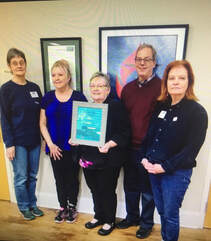 Trinity UMC in Southport, NC is the first church awarded with the “Ocean Friendly Establishments” award in Pender, New Hanover and Brunswick Counties, North Carolina. The Creation Care Ministry Team of Trinity took on the goal of educating the congregation of Trinity UMC and the communities of Southport, St. James, Boiling Spring Lakes and Leland, NC to a greater understanding of the waste we are putting in the Atlantic Ocean that is at our front door. The project initially started in the kitchen area, led by Dr. Rebecca Felton, who undertook the task of guiding us through the process of removing plastic and Stryofoam from the church’s kitchen. We then extended it to the entire building with recycling bins throughout, ways tomake classrooms plastic free, etc. The children and youth participated in “The Crayon Project”. We created a document for those outside of our church that use it for meeting space to coordinate with us on this endeavor as well. We have been educating our congregation through our Facebook page, meetings, classes, speakers and articles which have helped people change their habits and make them more aware of caring for God’s creation. We studied the book, “Climate Justice” and met with Rev. Pat Watkins to be certified in the NC Conference with the “Green Church Initiative”. We recently held an Earth Keepers training for the NC Conference and 34 new Earth Keepers were commissioned. The “Ocean Friendly Establishments” is a local chapter, part of the “International Plastic Ocean Project.” The local chapter started with educating restaurants to, “Skip the Straw” and have since added ways for restaurants to lower their carbon footprint. The local chapter decided to open this opportunity of being awarded to other establishments that were also working on reducing the waste to the ocean. After discussion of the criteria, our Creation Care Ministry Team made the decision to apply for this recognition. We were awarded the highest level of a 5-star award. Arizona Religious Leaders Urge Senator McSally to Champion Land and Water Conservation Fund3/10/2020 Phoenix – March 10, 2020 – In response to her recent co-sponsorship of Senate Bill 3422, legislation that would provide permanent, dedicated funding for the Land and Water Conservation Fund, the Arizona Faith Network and Creation Justice Ministries released a letter to Senator Martha McSally. Signed by more than 30 Arizona religious leaders, the letter not only expresses gratitude for Senator McSally’s step to protect public lands; it urges her to take become a vocal champion for a properly resourced Land and Water Conservation Fund. The letter highlights religious leaders’ reasons for valuing public lands as “places of sabbath,” and spaces where “veterans can experience a homecoming… of solace and healing.” The letter expresses the religious leaders’ desire “to support your efforts to use your leadership role in the US Senate to champion the freedom, beauty, and bounty of God’s creation through good stewardship of our public lands.” Arizona Faith Network Executive Director Rev. Katie Sexton said of the letter, “As Arizona faith leaders, we see Senator McSally’s genuine connection with our public lands in action. Whether she’s out on our Arizona hiking trails with her dog Boomer, or showing her support of the Land and Water Conservation Fund in the Senate, we want her to know how vital her voice is.” Creation Justice Ministries Executive Director Shantha Ready Alonso said of the letter, “When I observe who in Congress is championing public lands, I see a great opportunity for moral leadership out of Senator McSally’s office. Arizona has some of the most treasured public lands in our country. Senator McSally is well-positioned to be a respected consensus-builder in Congress who can advance the cause of conserving God’s creation for generations to come.” 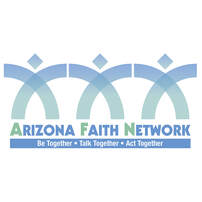 Arizona Faith Network is a Multi-faith Organization dedicated to bringing people together to promote peace and understanding through interfaith education and dialogue as well as healing of the world through collaborative social action. We are made up of people of different faiths who covenant with each other in solidarity and mutual respect. We recognize that our diversity makes us stronger and while we seek to find common ground, we also lift up our differences as unique individuals and communities. Together we are committed to both civil dialogue and transformational action while we seek to keep our faiths and beliefs as an inspiration and direction for all that we do. 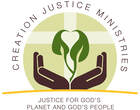 Creation Justice Ministries represents the creation care and environmental justice policies of major Christian denominations throughout the United States. We work in cooperation with 38 national faith bodies, including mainline Protestant, historically Black Church, Baptist, Peace Church, and Orthodox communions. |
About this BlogThis blog shares the activities of Creation Justice Ministries. We educate and equip Christians to protect, restore, and rightly share God's creation. Archives
July 2024
Categories
All
|
Photo from johndillon77
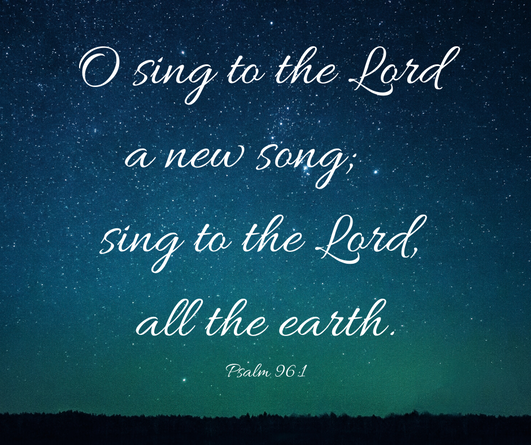
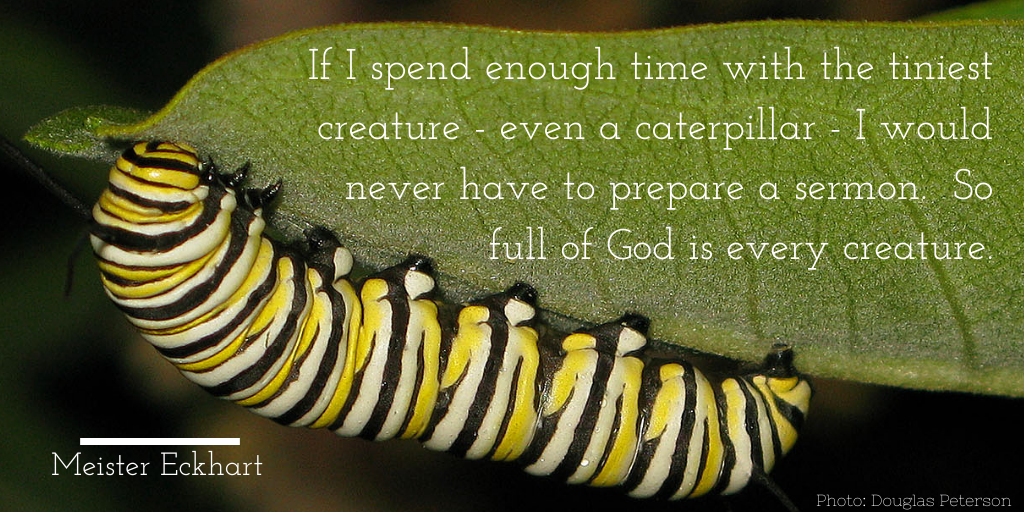
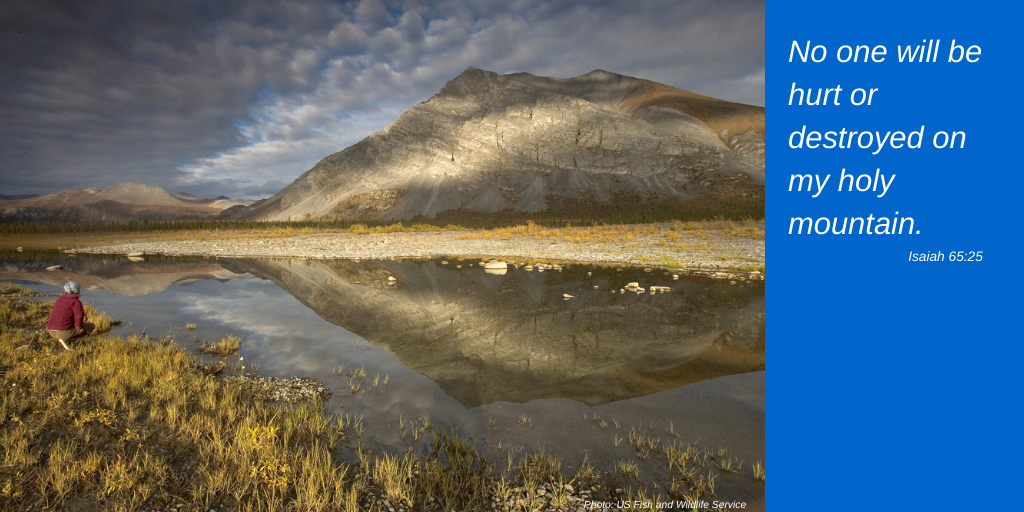
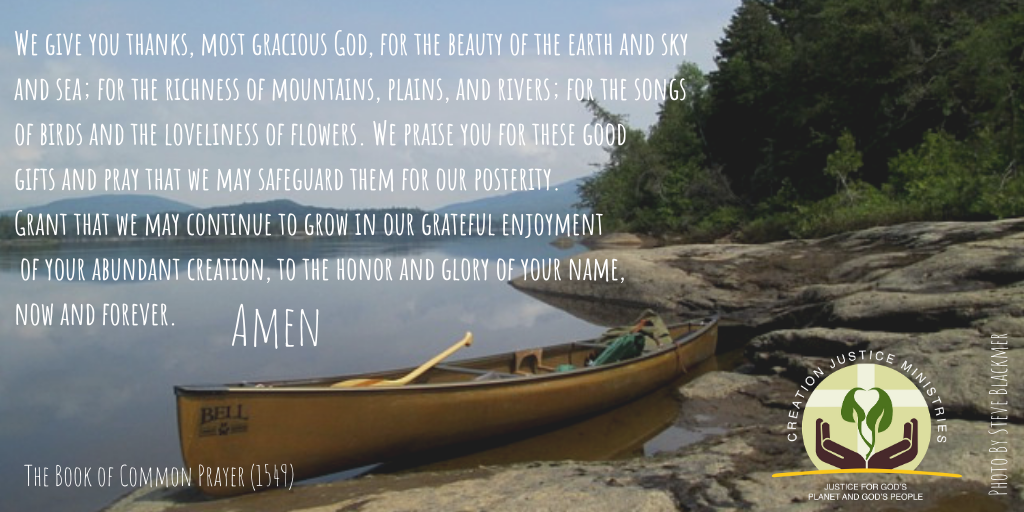
 RSS Feed
RSS Feed